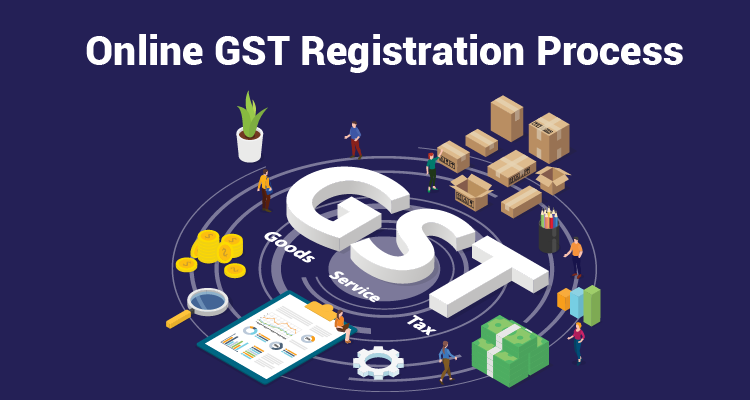Why Singapore GST Registration is Critical for Your Startup
Making Best Use Of Tax Obligation Effectiveness: Professional Tips on Navigating the GST Enrollment Maze for Local Business
Browsing the detailed landscape of Product and Services Tax Obligation (GST) registration can be a labyrinthine job for tiny businesses intending to maximize their tax obligation efficiency. In this discussion, we will check out experienced understandings and actionable guidance that can equip tiny businesses to browse the GST enrollment puzzle effectively and maximize their tax effectiveness.
Qualification Requirements
Eligibility needs for Small Service GST Enrollment encompass details standards that companies need to satisfy to follow tax obligation regulations. To get approved for GST registration, a service must have a yearly turnover going beyond the threshold established by the tax obligation authorities, which differs by country. Furthermore, services associated with inter-state supply of goods or solutions, or those selling goods online, may be required to sign up for GST, regardless of their turn over. It is vital for services to properly determine their eligibility based on these turn over thresholds to prevent fines for non-compliance. Singapore GST Registration.

Paperwork Requirements
The called for documents commonly consists of evidence of business enrollment or address, identification and incorporation proofs of the business proprietor, photos, financial institution account details, and proof of the primary location of organization. Furthermore, businesses require to give information of their company tasks, consisting of the products or solutions supplied.
Maintaining all necessary documentation organized and conveniently available can enhance the enrollment process and help services comply with the needs efficiently. Meticulous interest to detail and adherence to the documentation guidelines are important for a successful GST registration process for tiny organizations.
Timing Factors To Consider
Thinking about the essential documentation requirements have been meticulously attended to, the following essential facet for small companies starting the GST enrollment process is the calculated monitoring of timing considerations. Timing plays a pivotal function in GST registration, impacting not only compliance yet additionally economic elements of business. Small companies require to thoroughly prepare the timing of their GST enrollment to take full advantage of advantages and minimize potential threats.

In addition, services should align the timing of their GST registration with their functional preparedness. Sufficient preparation, such as upgrading audit systems and training staff, is vital to effortlessly integrate GST demands into daily operations. By strategically handling timing considerations, small companies can Look At This browse the GST enrollment process efficiently and maximize their tax obligation effectiveness.
Enrollment Process Tips
Successfully browsing the GST enrollment process requires little organizations to carry out aggressive and critical registration process tips. One critical idea is to ensure all necessary files are readily available prior to beginning the registration process. This includes company enrollment files, evidence of address, financial institution statements, and identification proofs of business owners. Validating the accuracy of the info supplied is equally essential to avoid denials or delays.
Additionally, understanding the limits and demands for GST enrollment based upon the particular state or region where business operates is vital. Some states have various turn over limits that trigger required enrollment, so being educated about these limits can aid businesses plan ahead.
One more valuable idea is to think about looking for specialist aid from accounting professionals or tax obligation professionals who concentrate on GST enrollment. Their proficiency can improve the procedure, decrease mistakes, and ensure conformity with all laws.
Compliance Best Practices
Navigating the GST registration procedure smoothly requires not just tactical registration process tips yet also diligent adherence to conformity best techniques to guarantee continuous regulative placement. Small companies should focus on conformity to avoid charges and maintain a great standing with tax authorities. One important ideal practice is to keep precise and detailed records of all purchases. This consists of invoices, invoices, and various other financial documents that might be required for tax obligation audits or compliance checks. try this out Furthermore, remaining educated about any kind of adjustments or updates to GST laws is crucial. If required to guarantee they are satisfying all needs, small organization proprietors need to frequently evaluate federal government guidelines and look for specialist recommendations. Singapore GST Registration. It is additionally recommended to file GST returns on time to prevent late charges and penalties. By integrating these conformity best techniques right into their procedures, tiny businesses can browse the intricacies of GST enrollment with self-confidence and performance.
Final Thought
To conclude, small companies can navigate the GST registration maze by guaranteeing they meet qualification requirements, collect called for documentation, take into consideration timing ramifications, adhere to enrollment procedure pointers, and stick to conformity ideal practices. By making the most of tax obligation performance with appropriate GST registration, services can improve their financial monitoring and procedures.
Browsing the intricate landscape of Item and Solutions Tax Obligation (GST) registration can be a labyrinthine job for small businesses intending to maximize their tax obligation efficiency.Qualification demands for Small Service GST Enrollment incorporate particular my site standards that companies need to fulfill to conform with tax policies. The called for documentation normally includes proof of organization enrollment or incorporation, identity and address evidence of the organization owner, pictures, bank account information, and evidence of the primary place of company. Additionally, companies require to offer information of their business activities, including the services or products provided.Efficiently browsing the GST enrollment process calls for tiny businesses to implement aggressive and calculated registration process pointers.